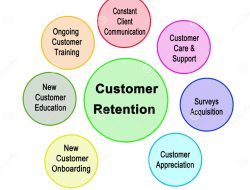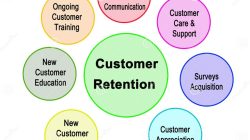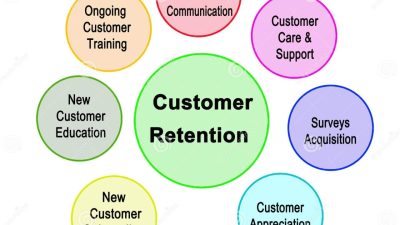Marketing Strategies for Accounting Audit Services in a Competitive Market is your gateway to mastering the art of promotion in a challenging industry. In today’s fast-paced business environment, accounting firms face relentless competition, making it imperative to develop innovative marketing strategies that resonate with potential clients. Understanding the competitive landscape, defining the target audience, and leveraging digital marketing channels are just a few of the essential components that will set your services apart and drive growth.
The world of accounting audit services is evolving, with key competitors and emerging market trends. By honing in on the unique needs of clients and crafting a compelling unique selling proposition, firms can navigate these challenges successfully. Discover how effective networking, strategic partnerships, and client retention strategies can enhance your brand’s visibility and strengthen client relationships.
Understanding the Competitive Landscape: Marketing Strategies For Accounting Audit Services In A Competitive Market
In the ever-evolving field of accounting audit services, understanding the competitive landscape is crucial for firms striving to maintain and enhance their market position. This environment is characterized by numerous key players and dynamic market trends that can significantly influence operational strategies and client relationships.The accounting audit services market hosts a variety of competitors, ranging from small boutique firms to large multinational corporations.
Each entity brings unique strengths and weaknesses, influencing client choices and market trends. Common challenges for audit firms include price competition, maintaining compliance with evolving regulatory requirements, and the need for technological adaptation in service delivery. Recognizing these challenges allows firms to devise effective strategies that fit within the competitive framework.
Key Competitors in the Market
Identifying major competitors within the accounting audit space is essential for firms aiming to carve out a niche in the market. The competitive landscape is shaped by several notable players, including:
- The Big Four – Deloitte, PwC, EY, and KPMG, known for their extensive resources and global reach.
- Regional firms – Providing specialized services tailored to local markets and industries.
- Emerging technology firms – Utilizing advanced data analytics and automation to deliver innovative audit solutions.
These competitors each present unique challenges and opportunities that firms must navigate to establish their presence.
Challenges in a Competitive Environment
Firms in the accounting audit sector face numerous hurdles in their quest for market share. Key challenges include:
- Intense price competition – Firms often struggle to balance competitive pricing with the need to maintain quality and profitability.
- Regulatory compliance – Constantly changing regulations require firms to stay updated and adapt their practices accordingly.
- Technological advancements – With the rise of digital tools, firms must invest in technology to keep pace with industry changes and client expectations.
Addressing these challenges effectively is crucial for long-term sustainability and growth.
Market Trends Influencing Accounting Audit Services
Being aware of current market trends can provide firms with a strategic advantage. Some notable trends currently shaping the accounting audit landscape include:
- Increased demand for transparency – Clients are increasingly seeking audits that not only meet regulatory requirements but also enhance trust and credibility.
- Adoption of artificial intelligence and automation – Firms are leveraging AI to streamline processes, reduce costs, and increase accuracy in audit practices.
- Focus on sustainability and corporate governance – There is a growing emphasis on audits that assess not just financial health but also environmental and social governance (ESG) factors.
Staying attuned to these trends allows firms to tailor their services to meet evolving client expectations and market demands.
“In today’s audit landscape, success lies not just in traditional audit practices but in embracing innovation and adapting to an ever-changing environment.”
Target Audience Definition
Identifying the ideal client profile for accounting audit services is crucial in optimizing marketing strategies. Understanding who your potential clients are, what they need, and how they prefer to receive services allows firms to tailor their offerings and communication effectively, gaining a competitive edge in the market.Defining the target audience involves recognizing the characteristics and behaviors that make up your ideal clients.
This understanding is essential as it shapes marketing messages and outreach strategies that resonate with potential clients. A thorough comprehension of client needs and preferences also fosters stronger relationships, enhancing client retention and satisfaction.
Ideal Client Profile for Accounting Audit Services
The ideal client profile should encompass several demographic and firmographic characteristics, enabling a clear understanding of target segments. Consider the following key attributes:
- Business Size: Focus on small to mid-sized enterprises (SMEs) that require regular auditing services but may not have in-house expertise.
- Industry Vertical: Target industries that are heavily regulated, such as healthcare, finance, and non-profits, which often face stringent audit requirements.
- Geographic Location: Consider local businesses, as proximity can enhance service delivery and client relationships.
- Client Maturity: Engage with established businesses that have a history of financial reporting and compliance needs.
Understanding these audience characteristics allows firms to create tailored marketing materials that address specific pain points and demonstrate how their services can resolve these issues.
Importance of Understanding Client Needs and Preferences
Recognizing client needs and preferences is paramount in delivering services that not only meet but exceed expectations. This understanding helps in crafting personalized experiences that foster loyalty and advocacy.
“Clients are not just looking for audit services; they seek partners who understand their unique challenges and can provide strategic insights.”
By focusing on client feedback, preferences, and service usage patterns, firms can align their offerings more closely with what clients truly value. This leads to greater satisfaction and retention rates.
Methods for Segmenting the Target Audience Effectively
Effective segmentation of the target audience involves various strategies to categorize potential clients based on shared characteristics. The following methods can enhance this process:
- Demographic Segmentation: Utilize age, gender, income, and occupation to better understand client backgrounds.
- Behavioral Segmentation: Analyze how clients interact with your services, identifying usage patterns and preferences.
- Needs-Based Segmentation: Group clients based on specific needs, such as compliance, risk management, or advisory services.
- Firmographic Segmentation: Focus on organizational characteristics like industry, size, and growth stage to tailor approaches effectively.
Through these segmentation methods, accounting audit firms can develop targeted marketing campaigns that resonate with specific client groups, ensuring a higher conversion rate and ultimately driving business growth.
Unique Selling Proposition (USP)
In the realm of accounting audit services, a well-defined Unique Selling Proposition (USP) serves as the cornerstone for differentiating a firm from its competitors. A compelling USP not only clearly articulates the unique benefits and value a firm provides but also resonates with the needs and expectations of potential clients. It highlights what makes the firm stand out in a crowded marketplace, allowing clients to make informed decisions based on the distinct offerings available to them.A successful USP for accounting audit services should be centered around three core elements: expertise, trust, and innovation.
By emphasizing these facets, firms can build a strong foundation that caters to the demands of a competitive landscape.
Comparison of USPs Used by Successful Firms
Analyzing the USPs of leading accounting firms reveals various strategies that effectively attract and retain clients. Here are notable examples:
- Ernst & Young (EY): EY emphasizes its global reach and innovative technology solutions, promising clients not just reliable audits but also forward-thinking insights that can drive business growth.
- Deloitte: Deloitte utilizes its reputation for industry-specific expertise, ensuring clients receive tailored services that align with the unique challenges faced in their sectors.
- KPMG: KPMG focuses on trust and transparency, positioning its audits as a means to foster accountability and build stakeholder confidence, which is crucial for businesses in sensitive industries.
These examples illustrate how different aspects of a firm’s capabilities can be highlighted to create a powerful USP. Each firm’s approach caters to specific client concerns, demonstrating that a well-articulated USP can significantly enhance market differentiation.
Strategies for Communicating the USP Effectively
Effectively communicating the USP is vital to ensuring potential clients understand the distinctive value offered. Here are key strategies to achieve this:
- Targeted Marketing Campaigns: Utilize data insights to tailor marketing campaigns that connect directly with the pain points of the target audience, showcasing how the USP addresses those needs.
- Client Testimonials and Case Studies: Leverage satisfied clients’ testimonials and detailed case studies that highlight the successful application of the firm’s unique offerings. This builds credibility and trust.
- Content Marketing: Produce informative content such as blogs, whitepapers, and webinars that educate potential clients about the benefits of your unique services, positioning the firm as a thought leader in the industry.
By implementing these strategies, firms can ensure their USP resonates with potential clients, leading to increased engagement and ultimately, client acquisition.
Digital Marketing Strategies
In today’s competitive landscape, accounting audit services can significantly benefit from effective digital marketing strategies. The digital realm offers a multitude of channels that can elevate brand visibility, increase client engagement, and ultimately drive service inquiries. By embracing a comprehensive digital marketing approach, firms can position themselves as leaders in the field while effectively reaching their target audiences.
Digital Marketing Channels for Audit Services
Utilizing various digital marketing channels is essential for promoting audit services effectively. Below are key channels that can be leveraged:
- Search Engine Optimization (): Optimizing your website for search engines ensures that potential clients can find your audit services when searching for relevant s. This includes on-page practices such as optimizing meta tags, headings, and content, as well as off-page tactics like building backlinks.
- Pay-Per-Click Advertising (PPC): PPC campaigns on platforms like Google Ads can drive immediate traffic to your website. Focus on targeted s relevant to audit services, allowing you to attract clients actively seeking these services.
- Email Marketing: Regular newsletters can keep your audience informed about audit trends, updates in regulations, and tips. Segmenting your email list ensures tailored messages that resonate with specific client needs.
- Content Marketing: Producing informative content such as blog posts, whitepapers, and case studies not only showcases your expertise but also helps in building trust with potential clients.
Leveraging Social Media for Brand Awareness and Client Engagement
Social media is a powerful tool for enhancing brand awareness and engaging with potential clients in the audit sector. By strategically using platforms like LinkedIn, Facebook, and Twitter, firms can create meaningful connections with their audience.
- Content Sharing: Regularly share informative posts, updates on industry trends, and success stories on your social media pages. This establishes your firm as a knowledgeable entity in the audit space.
- Engagement: Respond promptly to comments and messages from followers. Engaging with your audience fosters a sense of community and builds trust.
- Webinars and Live Q&A Sessions: Hosting live events on social media can showcase your expertise and provide an interactive platform for potential clients to learn more about audit services.
Content Marketing Tactics for Educating Potential Clients
Educating potential clients about audit services is crucial for driving engagement and conversions. Implementing a robust content marketing strategy can facilitate this education effectively.
- Blog Posts: Regularly updated blog posts on topics related to audit processes, compliance changes, and best practices can attract organic traffic and position your firm as an industry thought leader.
- Infographics: Creating visually appealing infographics that explain complex audit concepts or processes can simplify information for potential clients, making it more digestible and shareable.
- Case Studies: Highlighting successful audits with detailed case studies can demonstrate your firm’s capabilities and impact, providing real-life examples that potential clients can relate to.
- Video Content: Utilizing video content to explain audit services, client testimonials, or FAQs can enhance engagement and allow clients to see the human side of your firm.
Networking and Relationship Building

In the competitive accounting industry, networking and relationship building serve as critical pillars that can significantly influence business growth and sustainability. Establishing a strong network of professionals and potential clients not only fosters trust and credibility but also opens doors to new opportunities and referrals. By actively engaging with others in the field, accountants can enhance their visibility and position themselves effectively within the market.Building strong relationships with clients and partners requires a strategic approach.
Accountants should prioritize authentic connections that go beyond mere transactions. This involves understanding the needs and challenges faced by clients, actively listening, and providing tailored solutions that demonstrate genuine concern for their success. Such approaches not only solidify existing relationships but also encourage word-of-mouth referrals, which can be invaluable in this industry.
Methods for Building Strong Relationships
Establishing and nurturing relationships in the accounting sector involves various strategies that can lead to fruitful partnerships and client loyalty. Below are effective methods that can be employed:
Attend Industry Events
Participate in conferences, workshops, and seminars related to accounting and finance. This not only enhances knowledge but also allows for face-to-face interactions with potential clients and peers. Engaging in discussions during these events can result in meaningful connections.
Leverage Social Media Platforms
Utilize platforms like LinkedIn to connect with industry professionals, share insights, and engage in relevant discussions. Regularly updating your profile with valuable content can attract interested parties and facilitate networking opportunities.
Offer Free Workshops or Webinars
Providing educational sessions on relevant accounting topics can position you as an expert in the field. This initiative not only showcases your skills but also attracts individuals who may become future clients.
Join Professional Associations
Being a part of organizations such as the American Institute of CPAs (AICPA) or local accounting groups can help in building credibility. These associations often provide networking events, resources, and opportunities to collaborate with other professionals.
Follow-Up and Maintain Contact
After meeting someone new, follow up with a personalized message expressing your pleasure in meeting them. Regular check-ins can keep the relationship alive and remind them of your services when they need assistance.
“Networking is not just about collecting contacts; it’s about planting relations.”
Examples of effective networking strategies include creating partnerships with local businesses that complement your services, such as legal firms or financial advisors. These partnerships can lead to mutual referrals and a broader client base. Additionally, participating in community service initiatives can enhance your firm’s visibility while forging relationships with other local businesses and potential clients.By implementing these methods and maintaining a proactive approach to networking, accounting professionals can significantly enhance their ability to attract new clients and develop lasting relationships that drive growth and success.
Client Retention Strategies
Retaining existing clients is crucial for the sustainability and growth of accounting audit services. In a competitive marketplace, it’s not only about acquiring new clients but also about ensuring that current clients remain satisfied and loyal. Implementing effective client retention strategies not only enhances customer satisfaction but also maximizes profitability in the long run.A well-structured approach to client retention involves understanding clients’ needs and consistently delivering exceptional service.
By nurturing relationships and soliciting feedback, audit firms can strengthen client loyalty and increase repeat business. An effective strategy may include tailored services and personalized communication, which significantly impact client retention rates.
Importance of Client Feedback
Incorporating client feedback into service offerings is essential for continuous improvement. Regularly soliciting and analyzing client opinions and experiences provides invaluable insights. Understanding their concerns or suggestions allows audit firms to adapt and enhance services accordingly.
- Surveys and Interviews: Conducting periodic satisfaction surveys or one-on-one interviews helps in gathering direct feedback about client experiences and expectations.
- Client Advisory Boards: Establishing advisory boards with key clients can facilitate ongoing dialogue, ensuring that the firm remains attuned to client needs and preferences.
- Service Review Meetings: Regular review meetings can be an opportunity to discuss feedback, address concerns, and showcase enhancements based on client input.
“Feedback is the breakfast of champions.” – Ken Blanchard
Loyalty Programs for Repeat Clients
Creating a loyalty program can significantly encourage repeat business and enhance client retention. Loyalty programs reward clients for their ongoing partnership, making them feel valued and appreciated.
- Discounts on Future Services: Offering discounts on future audits or related services can incentivize clients to return, ensuring they consider your firm first.
- Exclusive Access to Resources: Providing loyal clients with access to valuable resources, such as industry reports or risk management tools, sets the firm apart and fosters long-term relationships.
- Referral Bonuses: Implementing a referral program that rewards clients for referring new business can create a sense of community and advocacy around your services.
An effective loyalty program not only retains existing clients but also attracts new ones through positive word-of-mouth. By focusing on client retention strategies, audit firms can secure a steady stream of business while enhancing their reputation in a competitive market.
Performance Measurement
Effective marketing strategies for accounting audit services hinge on precise performance measurement. Setting measurable goals allows firms to gauge the success of their initiatives and optimize their approaches based on data-driven insights. In a competitive market, understanding performance metrics is integral to ensuring that marketing efforts align with business objectives and client expectations.Establishing measurable goals involves defining specific, achievable targets that can be tracked over time.
These goals should be aligned with broader business objectives and tailored to address the unique challenges of the accounting audit sector. It’s crucial to use appropriate tools and methods to track the effectiveness of marketing strategies, enabling firms to adapt and enhance their efforts continuously.
Setting Measurable Goals for Marketing Initiatives
Creating measurable goals is essential for any marketing initiative. These targets should be SMART: Specific, Measurable, Achievable, Relevant, and Time-bound. By following this framework, firms can ensure their goals are clear and attainable.
- Specific: Goals should be clear and concise, focusing on one aspect of the marketing initiative, such as increasing leads from online advertising.
- Measurable: Include quantifiable metrics, such as aiming to increase website traffic by 30% over the next quarter.
- Achievable: Ensure that the goals set are realistic given the firm’s resources and market conditions.
- Relevant: Goals should align with the overall business objectives. For example, increasing brand awareness in a targeted demographic that aligns with the firm’s services.
- Time-bound: Set a deadline for each goal to facilitate timely assessments and adjustments.
Tools and Methods for Tracking Effectiveness
Numerous tools and methods serve to track and analyze the effectiveness of marketing strategies. Insights gleaned from these tools are critical for making informed decisions and refinements.
- Google Analytics: Offers comprehensive data on website traffic, user behavior, and conversion rates, allowing for detailed analysis of online marketing efforts.
- CRM Systems: Customer Relationship Management software tracks interactions with clients and prospects, helping firms analyze customer engagement and retention metrics.
- Social Media Analytics: Platforms like Facebook, LinkedIn, and Twitter provide insights into engagement rates, reach, and audience demographics, essential for evaluating social media campaigns.
- Email Marketing Tools: Tools like Mailchimp or Constant Contact provide metrics on open rates, click-through rates, and conversions for email marketing campaigns.
- Surveys and Feedback Tools: Gathering direct feedback from clients through surveys offers qualitative insights into customer satisfaction and areas for improvement.
Performance Metrics Specific to Accounting Audit Services
Identifying and tracking specific performance metrics is crucial for evaluating marketing effectiveness in accounting audit services. These metrics provide clear indicators of success and areas needing attention.
- Client Acquisition Cost (CAC): The total cost involved in acquiring a new client, including marketing expenses, should be monitored to ensure cost-effectiveness.
- Lead Conversion Rate: The percentage of leads that convert into paying clients is a vital metric indicating the effectiveness of marketing strategies.
- Client Retention Rate: Tracking how many clients continue to use auditing services year after year helps assess client satisfaction and service quality.
- Return on Investment (ROI): Analyzing the financial return generated from marketing initiatives compared to the costs invested is essential for determining overall effectiveness.
- Brand Awareness Metrics: Measuring brand mentions, search volume, and online presence helps understand the reach and recognition of the firm’s brand in the market.
Leveraging Technology in Marketing
In today’s rapidly evolving business landscape, technology plays a pivotal role in enhancing marketing strategies for accounting audit services. By leveraging advanced tools and systems, firms can streamline processes, improve client engagement, and drive targeted marketing efforts. Embracing technology not only increases efficiency but also provides valuable insights that can shape decision-making and strategy.
Role of CRM Systems in Managing Client Relationships
Customer Relationship Management (CRM) systems are essential for managing client interactions and data throughout the client lifecycle. These systems help audit firms maintain organized client information, track communication history, and foster strong relationships. CRM systems enable firms to customize their marketing, making interactions more personal and relevant. By utilizing CRM systems, accounting audit services can:
- Centralize client information for easy access and management.
- Track client engagement to identify trends and preferences.
- Automate follow-ups to enhance client communication.
- Segment clients for targeted marketing campaigns based on specific needs.
- Measure client satisfaction and address concerns promptly.
“Effective CRM systems transform client relationships into lasting partnerships.”
Using Data Analytics for Targeted Marketing Efforts
Data analytics is a powerful tool that allows audit services to harness client data for targeted marketing initiatives. By analyzing trends, behaviors, and preferences, firms can develop strategies that resonate with their audience. Key aspects of leveraging data analytics include:
- Identifying high-value clients and tailoring services to their needs.
- Analyzing market trends to position services competitively.
- Measuring the effectiveness of marketing campaigns through performance metrics.
- Utilizing predictive analytics to anticipate client needs and preferences.
- Refining marketing messages based on data-driven insights.
“Data-driven marketing leads to enhanced relevance and engagement.”
Recommendations for Marketing Automation Tools Suitable for Audit Services
Marketing automation tools are invaluable for streamlining marketing efforts, particularly for accounting audit services. These tools help in automating repetitive tasks and enable firms to focus on strategic initiatives. Key features to look for in marketing automation tools include:
- Email marketing automation to nurture leads and maintain client relationships.
- Social media management tools for scheduling and analyzing posts effectively.
- Lead scoring systems to prioritize follow-ups based on engagement levels.
- Analytics dashboards to track campaign performance and ROI.
- Integration capabilities with existing CRM systems for seamless data flow.
“Automation in marketing frees up valuable time for strategic client engagement.”
Content Strategies for Engagement
Engagement through content is pivotal for accounting audit services in a competitive landscape. By delivering relevant, informative, and engaging content, firms can address client pain points effectively while establishing authority in the industry. A strategic approach to content not only attracts potential clients but also fosters loyalty among existing ones.
Topics for Blogs or Articles Addressing Client Pain Points
Identifying and addressing the specific challenges faced by clients can elevate your content strategy. Consider focusing on the following topics that resonate with potential clients:
- Understanding the Importance of Compliance in Today’s Business Environment
- Top 5 Audit Challenges for Small Businesses and How to Overcome Them
- Cost-Effective Strategies for Streamlining Financial Reporting
- How to Prepare for an Audit: A Step-by-Step Guide for Businesses
- The Role of Technology in Enhancing Audit Efficiency
- Common Misconceptions About Audits: What Every Business Should Know
- The Future of Auditing: Trends to Watch in the Next Decade
- How to Choose the Right Audit Partner for Your Business
Developing Informative Case Studies to Showcase Expertise
Case studies are powerful tools for illustrating the effectiveness of your services. To create impactful case studies, follow these steps:
1. Identify a specific client challenge
Select a client situation that exemplifies a common issue faced by your target audience.
2. Detail the solution
Explain the audit approach utilized, including methodologies, tools, and processes applied to address the challenge.
3. Highlight the results
Present measurable outcomes and benefits achieved, such as cost savings, compliance improvements, and enhanced financial clarity.
4. Include client testimonials
Gather feedback from the client to add credibility and a personal touch to the case study.
5. Format for accessibility
Use clear headings, bullet points, and visuals to enhance readability and engagement.
Organizing Webinars or Workshops for Client Engagement, Marketing Strategies for Accounting Audit Services in a Competitive Market
Webinars and workshops are instrumental in fostering direct engagement with potential clients while providing them with valuable insights. Here’s how to effectively organize these events:
1. Identify relevant topics
Focus on subjects that directly address client pain points or industry trends, ensuring the content is timely and applicable.
2. Choose the right format
Decide between a presentation, panel discussion, or interactive Q&A session to best suit the topic and audience.
3. Promote the event
Utilize digital marketing channels such as email, social media, and your website to generate interest and drive registrations.
4. Engage with participants
Encourage interaction during the webinar through polls, questions, and chat features to create a dynamic learning environment.
5. Follow up
After the event, send a thank-you email and provide attendees with access to recorded sessions, supplementary materials, or exclusive offers.By implementing these content strategies, accounting audit services can effectively engage their audience, address key pain points, and demonstrate their value in a competitive market.
Strategic Partnerships
Building strategic partnerships can significantly enhance marketing efforts for accounting audit services, providing a competitive advantage in a crowded marketplace. By collaborating with other businesses that share a complementary client base, firms can tap into new markets, enhance service offerings, and increase credibility among clients. These partnerships not only amplify marketing reach but also foster innovation through shared resources and expertise.Identifying potential strategic partners begins with examining organizations that align with the audit service’s goals and values.
This could include financial advisors, legal firms, technology providers, or industry associations. Each potential partner should bring something valuable to the table, whether it’s access to a new customer segment, enhanced service capabilities, or market credibility.
Identifying and Approaching Potential Partners
When considering partnerships, it’s crucial to evaluate the strategic alignment and potential benefits. The following steps can guide firms in identifying and approaching potential partners:
- Research Complementary Businesses: Identify firms that offer services that complement audit services, such as tax advisors, business consultants, or financial institutions. These businesses often share similar target audiences, making collaboration beneficial.
- Leverage Networking Events: Attend industry conferences and networking events to meet potential partners. Personal interactions can create trust and facilitate discussions about mutual benefits.
- Utilize Professional Associations: Join industry associations where potential partners are likely to be members. These associations often provide networking opportunities and collaborative platforms.
Negotiating partnerships requires a clear understanding of mutual benefits. Firms should prepare to Artikel how the partnership can create value for both parties. Engaging in open discussions about goals, expectations, and contributions is essential for developing a strong partnership.
“A successful partnership is based on shared values, open communication, and mutual benefits.”
Examples of Successful Partnerships in the Auditing Sector
To illustrate the effectiveness of strategic partnerships, consider the following examples where collaboration has proven advantageous in the auditing sector:
- Accounting Firms and Legal Advisors: Many accounting firms partner with legal advisors to offer comprehensive services. This partnership enables firms to provide clients with legal guidance alongside financial advice, enhancing the overall service experience.
- Audit Firms and Technology Companies: Collaborations between audit firms and technology providers, such as software companies specializing in data analysis, have led to improved efficiency in audit processes. These partnerships allow for the integration of advanced technology, which can enhance audit accuracy and speed.
- Industry Associations and Auditing Firms: Partnerships with industry associations facilitate access to a wider network of potential clients. For example, an auditing firm that collaborates with a trade association can gain credibility and visibility among association members, leading to new client acquisitions.
Strategic partnerships can serve as a catalyst for growth, innovation, and enhanced service delivery in the competitive landscape of accounting audit services. By leveraging shared resources and expertise, firms can create lasting relationships that contribute to sustained success.















